Sweet Bird of Youth (1962)
“I’m gonna have to remove Chance Wayne from your life finally, and for the last time!”
|
Synopsis: |
|
Genres, Themes, Actors, and Directors:
Review: Newman is at his hunkiest (is that even possible to distinguish?): … and Page is note-perfect as an insecure, narcissistic diva, still gorgeous and alluring, but clearly about to pass her prime. The rest of the storyline — primarily centered on venal Begley’s outsized political and personal influence in his town — is a tough pill to swallow but, sadly, all too believable. It’s gut-wrenching watching him bully and mistreat everyone around him, including his daughter (Knight): … his sister (Mildred Dunnock), his staffers, and — most infamously — his mistress (Sherwood): … not to mention seeing the ripple effect this has on his son (Torn), who it seems will follow in his footsteps: As Bosley Crowther wrote in his amusing assessment for the New York Times:
Mostly, however, we’re eager to see how things will play out between Newman and Page: each is cockily confident they will get what they want from the other, and weirdly enough, we can’t help rooting for both of them in turn. As CineSavant writes in his review for Trailers From Hell, “Not all Tennessee Williams film adaptations are successful, but Richard Brooks’ blend of romance, show biz venality and political thuggery is just too entertaining to dismiss.” Note: Thankfully, censors demanded that the utterly bleak ending of Williams’ play be altered somewhat, leaving us with an unexpected sense of hope by the end. Redeeming Qualities and Moments:
Must See? Categories
Links: |
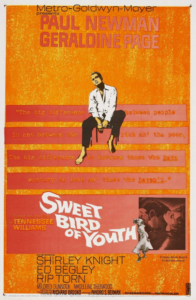
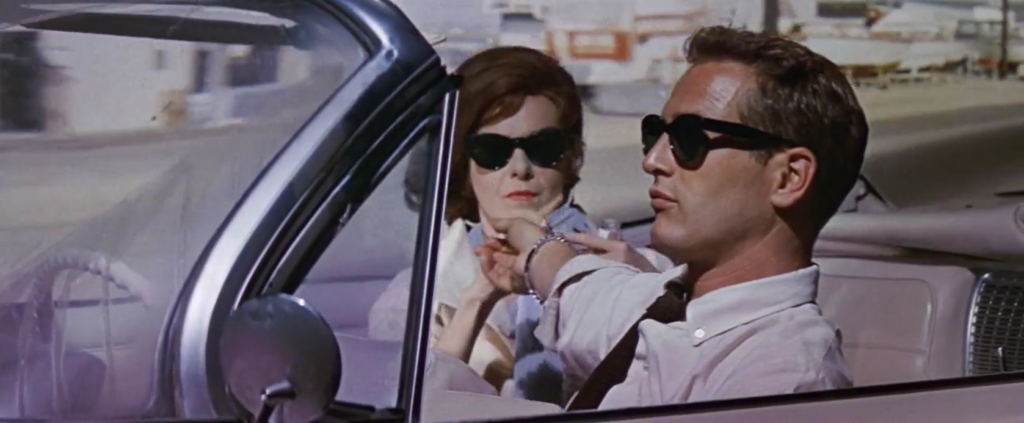
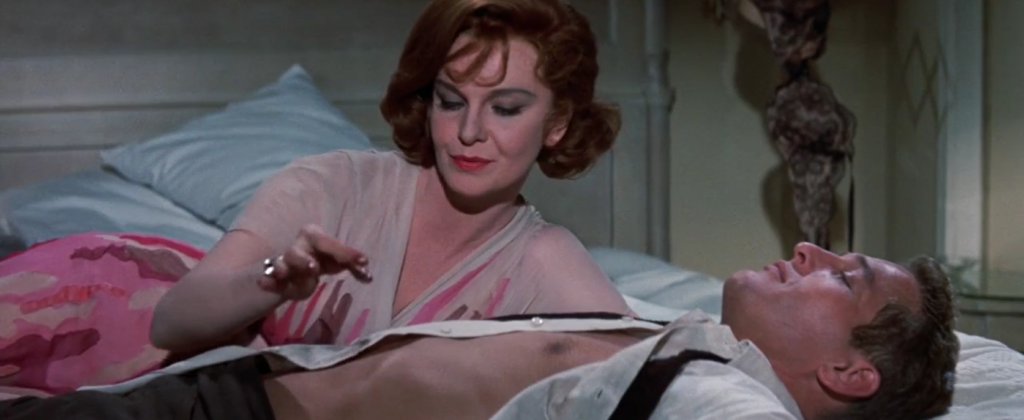
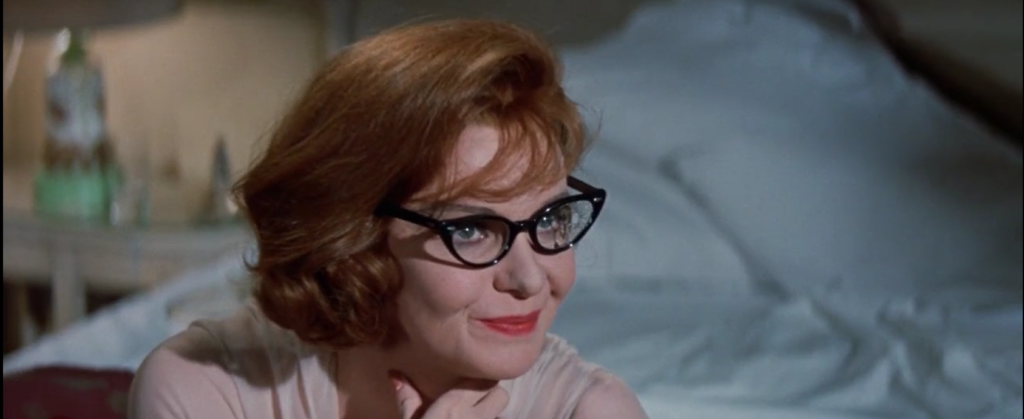
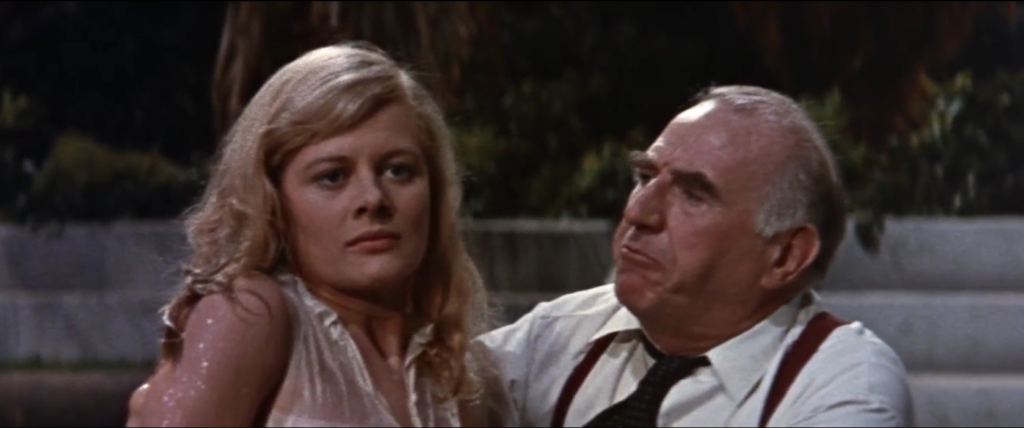
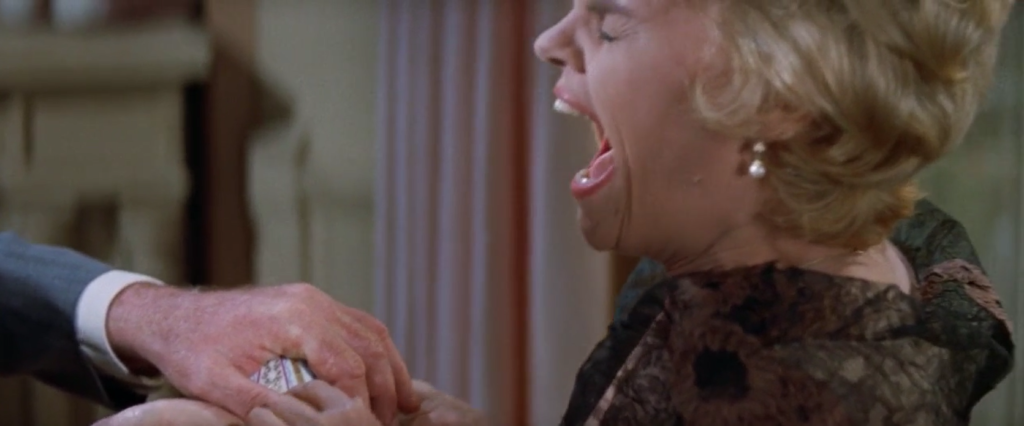
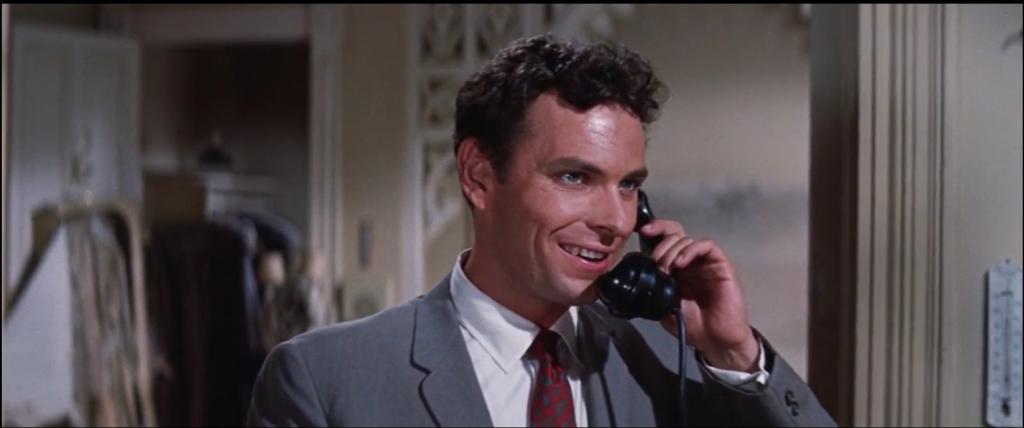
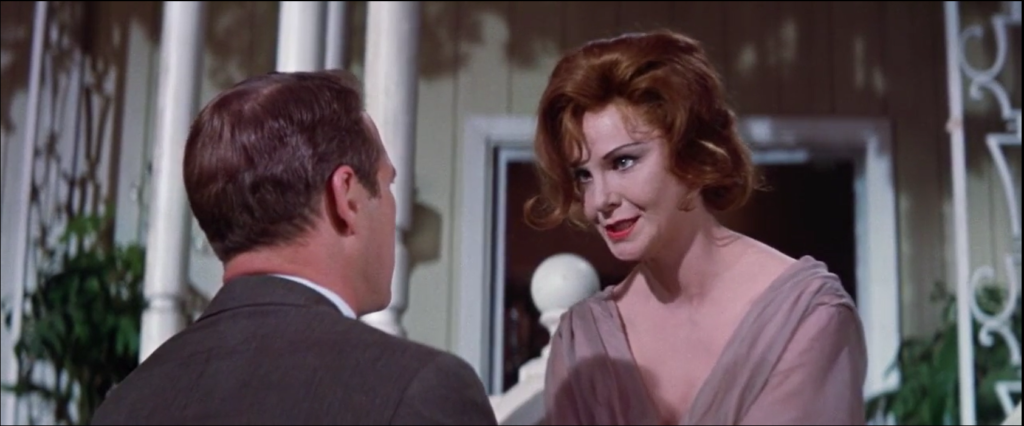
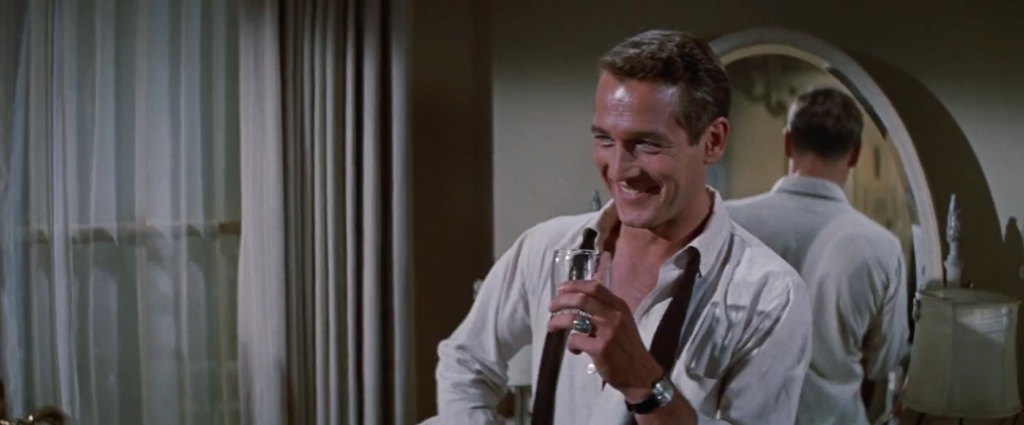
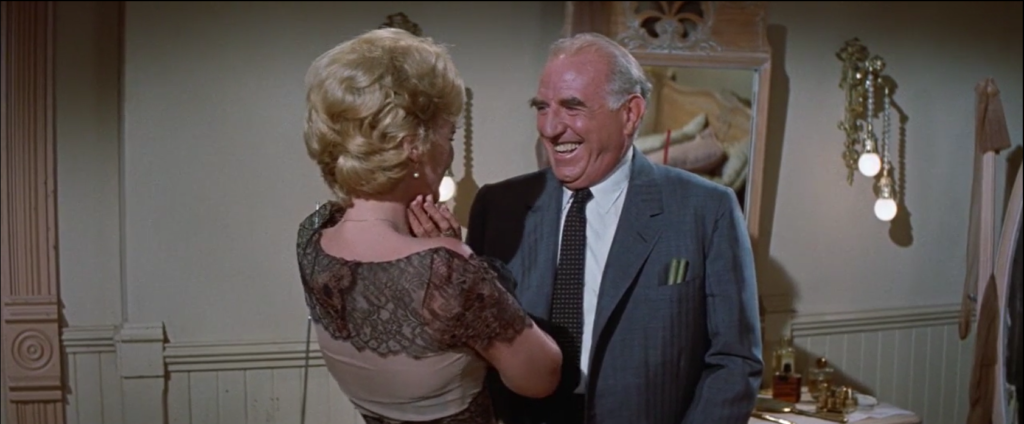
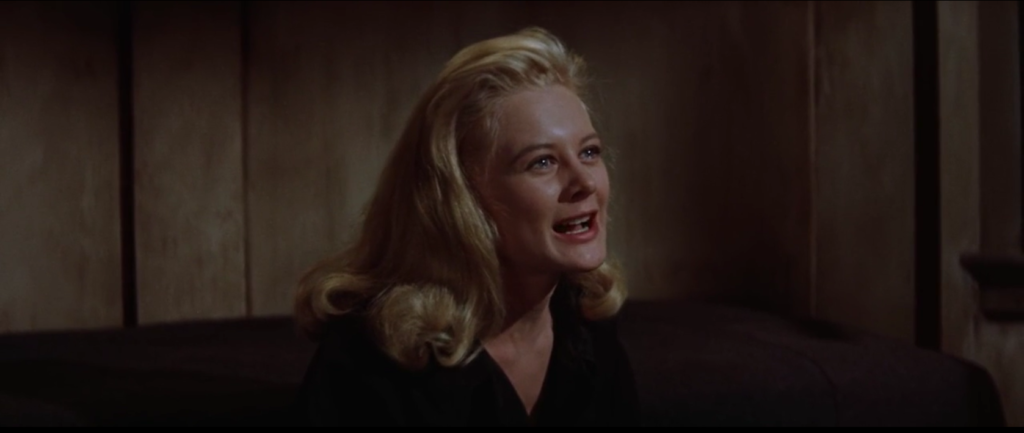
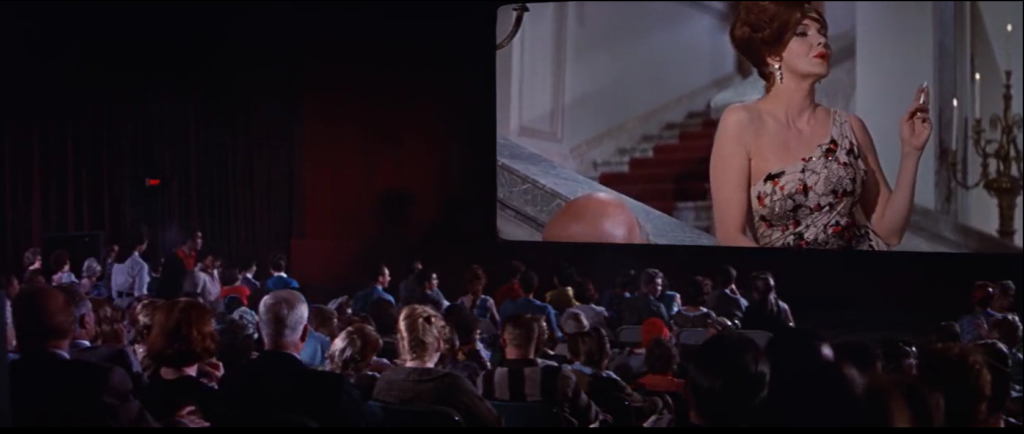
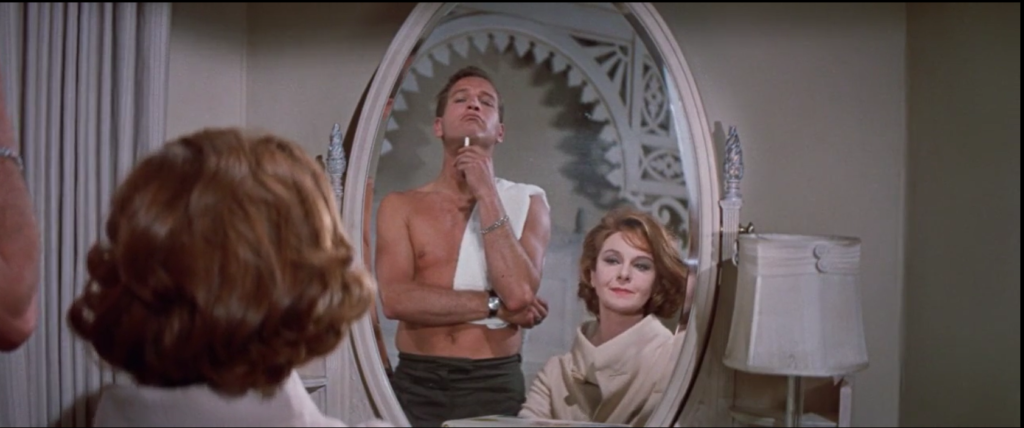
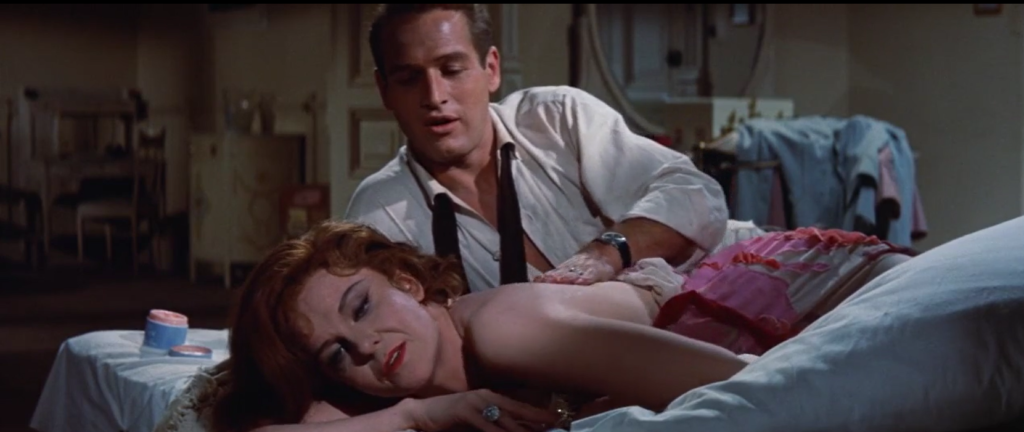
One thought on “Sweet Bird of Youth (1962)”
Agreed; a once-must for Page’s performance. As per my post in ‘The ’40s-’50s in Film’ (fb):
“When monster meets monster, one monster has to give way and it will not be *me*.”
‘Sweet Bird of Youth’: Though the film adaptation was released in 1962, this Tennessee Williams play is very much a product of the ’50s. It was produced on Broadway in 1959 (directed by Elia Kazan), where it ran (surprisingly) for almost a year. But the play’s origin goes back further: TW had written it previously as both a one-act play and a two-character version. In 1956, it was performed as a work-in-progress in Florida (starring Tallulah Bankhead, who TW had in mind when he wrote the lead). Kazan saw that version – and steered the play to NYC.
This is a Williams play I hadn’t actually read til today. There had been a lot of talk about how the film changed the ending. It does. The talked-about castration for Chance Wayne (Paul Newman) doesn’t happen. (Instead, his face is roughed up. Actually, the castration is only suggested slightly in the play.) But ultimately that’s a small point.
Writer / director Richard Brooks actually does a better job with ‘Sweet Bird’ than with the hatchet-job he made out of ‘Cat on a Hot Tin Roof’ (which removes every hint of homosexuality, thus killing the overriding point of the play). Brooks finds ways to flesh out certain aspects of the play (esp. the political ones) and he generally adds texture.
Thing is: this isn’t a Williams play that I particularly like – by which I mean I don’t think it’s among his strongest work. Kazan said, “I think this is the most truly autobiographic play Williams ever wrote.” But what is that supposed to mean when Williams was a fiercely ‘autobiographical’ writer? Kazan went on: “It is the frankest play he has written, dealing as it does with his own corruption and his wish to return to the purity he once had.”
Well, maybe. But finding TW’s personal corruption here may be tough. What’s not tough to find is what Geraldine Page brings to her performance as panicky movie star Alexandra del Lago. Williams said, “It’s a virtuoso part, demanding great stature, stage presence, power, vocal richness and variety.” When you read the play, it’s hard seeing all of that on the page. As written, it’s not like it’s Blanche DuBois, not by a long shot.
But what Page mindfully digs out of the part is remarkable. Most of the time. Personally, I don’t buy all of it (which is not Page’s fault)… but what the actress masterfully manages makes me buy it most of the time. She won a Golden Globe and the Italian equivalent of the Oscar (a David di Donatello award).